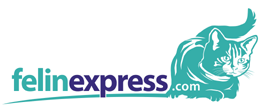 |
|||||||||||||||||||
|
|

We are the proud winners of the 2006 - 2009 winner of the Muse Medallion for Online Magazine by The Cat Writers? Association in their annual Communications Contest! (Photo courtesy of Weems Hutto).
On November 17, 2007 Felinexpress.com was honored to receive The President's Award by the Cat Writers' Association. We are very proud to have earned this distinction and will continue to provide quality information for all cat lovers.
Felinexpress.com home > Cat Care > Pet Insurance |
Pet Insurance
According to the RSPCA, in 2008 an increase of fifty-seven percent of owner- surrendered animals appeared in their shelters. In the United States during that year, the Humane Society claims that upwards to eight-million animals entered animal shelters, confirming the abandonment of animals is growing into an international epidemic.
The main culprit affecting pet owners from meeting even the basic needs of their pets lies in the current economic crunch. Sheila Stewart, of Capricom Animal Rescue Centre in Mold, United Kingdom, said that she believes that this can be overcome by the animal’s owners taking out pet insurance. According to Sheila, the rescue centre receives a number of animals in poor health, often as a result of owners not being able to afford standard vet care. She offers the following advice:
“We advise everyone who takes an animal from us to take out pet insurance…if you are covered by insurance it is the unexpected that you are covered for.”
Respectively, in the United States both the ASPCA and the Humane Society offers pet insurance options for animals adopted out of their shelters.
The History of Pet Insurance
Pet Insurance first arrived in Great Britain in 1947. Today over 19% of all pets in Great Britain are covered. The trend swept over to Sweden and soon pet insurance travelled to the United States. The first pet insured? Why, the famous television canine- Lassie (and her counterparts). However; today, only a small percentage of cats are covered by pet insurance. The majority of policies cover dogs, so why the difference?
Perhaps the answer lies in the way that some in society view cats. “Free Kitten” ads abound and many people advertise that they wish to “Get Rid” of a cat or a kitten, propelling the myth forward that cats carry no worth. Something which cat lovers will fight claw and teeth to prove otherwise.
Can I afford pet insurance?
As noted by Sheila, if you own a pet, you really can’t afford not to take out a pet insurance policy. The price of the policy will vary depending on a number of factors, such as:
- Your pets age-the older the animal the more you tend to pay
- The breed of the animal-with pure bred animals more expensive than mongrels and moggies
- Where you are located.
A price comparison on money supermarket for dog insurance showed that it can cost as little as $14.31 per year to insure a nine year old crossbreed with an excess of $117. This would cover vet bills of up to $6,220 and therefore isn’t to be scoffed at. Meanwhile, for cat insurance, the same agreement for a crossbreed can cost as little as $7.22.
What should I look out for in a policy?
In Great Britain, every provider is different and provides various levels of cover, so it is always important to examine the details of the policy before agreeing to it. The following tips should prove helpful:
- What vet treatments are covered-this is the most common reason for a pet insurance claim, and therefore there are many loopholes to look out for. Make sure you know how treatments are covered in the agreement; some insurance companies will agree to cover you for up to $6.220 but will refuse to pay up if the treatment received is not included in the agreement. Common exemptions include annual vaccinations.
- The excess-as with most insurance policies, the higher the excess the less the policy is likely to cost annually. Most excesses tend to be $60-$70, but some insurers will double this cost should the claim exceed an amount stated in the contract. Look out for this!
- Third party cover-Some pet insurers may not offer third party cover. This would mean that if your pet were to cause damage to someone else’s property, the insurance policy would not cover claims made against you. Most pet insurance policies will cover this, but make sure before agreeing to it.
- Dental cover-some insurers will cover your pet’s dental fees but not many, which are surprising given research by Sainsbury’s bank, showed that pet dental treatments were costing British pet owners up to $44.4 million per year. If this is important to you then make sure you pick an insurer who covers it.
Payment options-there are three payment options; lunar (payment every 28 days which means 13 payments
Changing the Tide:
In the United States in May of 2005, the IRS crafted a portion of their law (Section 125) to include a Cafeteria Plan. Under this new law, the IRS allows employers to permit automatic deductions from employee paychecks for everything from dental, eye insurance, health insurance and pet insurance.
Viacom, Nokia, and Proctor and Gamble now offer pet insurance as an automatic deduction easing the stress of their employees who own a pet and face potentially high veterinary costs.
During the 111th Session of Congress, the AVMA strove to heighten the awareness of the importance of vet care by presenting a bill allowing ALL employers to offer this benefit as an automatic deduction. Their goal included educating Congress, employer benefits managers, veterinarians (studies show only 50% of veterinarians are aware that pet insurance exists) and pet owners in the importance of pet insurance. The bill stalled, due largely in part to the protracted health-care debate and Congress addressing what they deemed more important matters on their already jammed calendar.
The importance of pet insurance
Pretax benefits lower payroll-related taxes for employer and employee and provide a measure of security for the pet and the owner. While research suggests that pet owners are more likely to make a claim on their pet insurance than on either car or home insurance. With studies suggesting that more than 140,000 dogs under three years of age suffer dermatitis alone each year, it is not difficult to see why.
When it comes to cats, many Pet Insurance Companies offer more than one package. Some policies are all-inclusive while others contain selective packets. Several companies stand in the forefront of helping with escalating vet expenses in the United States. However, just like any other insurance company, you need to read your plan carefully (including the fine print) before signing on the dotted line. Some policies will be all-inclusive while others contain selective polices. There are policies that have pre-set annual or incidence levels while others ask for a deductible (some reasonable, others a bit hefty).
Safeguard Your Pet:
- VPI Pet Insurance-one of the oldest and largest pet insurance companies in the United States. They offer several policies. Their newest policy for cat lovers Feline Elite which covers 50 of the most common cat health issues is expected to appeal to most cat owners. www.petinsurance.com
- Trupanion Insurance-no pay-out limit for injuries and accidents. They cover 90% of the bill. They do not cover routine vet care. Quotes vary according to your situation but can start lower than $20.00 per month with a $500.00 deductible. www.trupanionpetinsurance.com
- PurinaCare Pet Insurance-covers accidents, illnesses and routine vet care. Carries an annual deductible based on location and how many cats you own. Does not cover pre-existing conditions. www.purinacare.com
- Petcare- currently three policies available. www.petcareinsurance.com
- Pet Assure-covers all pets including pre-existing conditions. Helps also with general care of the cat including food and grooming needs. $99.00 for one pet, $149.00 for up to four pets. No deductibles benefit caps or limits. 25% discount on vet bills, up to 30% discount on pet food. Limited to their list of participating vets, pet food suppliers and groomers. www.petassure.com
- PetPlan-works in conjunction with the Humane Society www.gopetplan.com
By 2012, the market for pet insurance will reach a predicted 1.2 billion dollars in the United States. With increasing vet costs, challenging diseases and advancement in veterinary medicine many cat owners will look into how to meet the financial demands of providing excellent care to their cats. With the automatic deduction from their pay check, the “Kitty” can provide added security towards their cat’s health and well-being. A few dollars deducted from individual pay checks won’t be missed and provides a reassuring way to safeguard a pet. Hopes are high that during the upcoming 112th Congress, the AVMA will once again take up this cause proving successful, providing a measure of security to pet owners especially during these uncertain economic times.
My thanks go out to Mark Martin of www.moneysupermarket.com for providing information for this article.
More cat breeds |
|
? Copyright 2006-2010 Felinexpress.com, All Rights Reserved
Privacy Statement - Disclaimer - About Me


